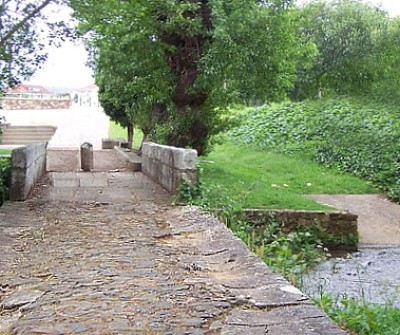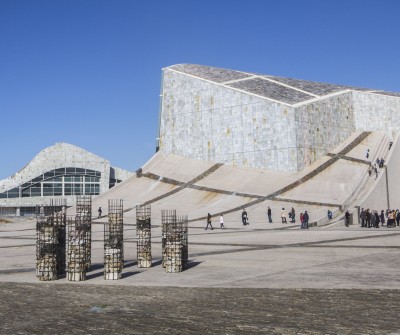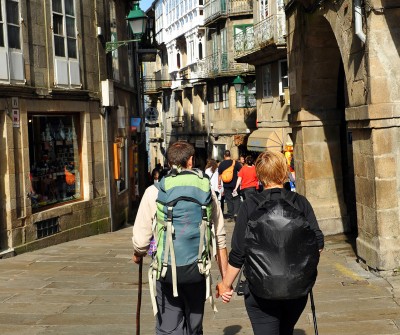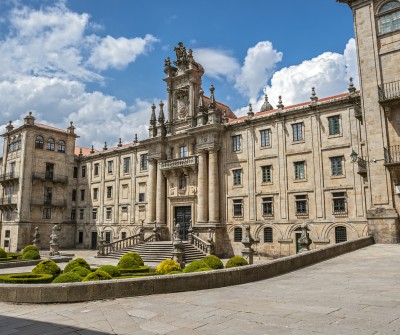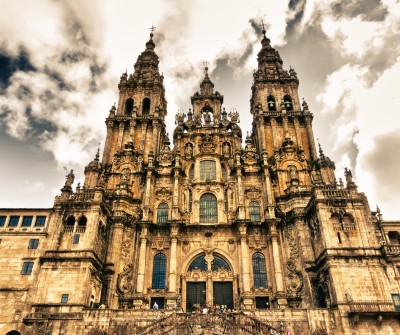Ponte Ulla is left behind, continuing parallel to the N-525
towards the next town. In this section you can see the famous Pico Sacro, of
great importance in the Jacobean tradition, since it is the first place from
where you could see the towers of the Cathedral of Santiago, and it is the
place where, according to legend, they were the oxen of Queen Lupa.
At 4km we find Outeiro, a place that has a hostel for those
who prefer to extend the previous stage. From here you continue to the town of
Lestedo, in the neighboring town of Boqueixón. In a section where asphalt
predominates, we continue towards A Susana, each time closer to the entrance to
Santiago de Compostela.
You have to avoid various road and train crossings, until
you reach the beautiful hermitage of Santa Lucía, to continue along the Camiño
Real de Piñeiro and continue to the place of Angrois.
Breathing becomes short
when crossing the high-speed tracks that were the scene of the terrible train
accident that occurred in July 2013. In the accident, 79 people died and the
survivors were helped by the residents of this Compostela village, recognized
worldwide for their altruism.
The march continues along the Calzada do Sar, from where the
Cidade da Cultura de Galicia can be seen at the top, to then offer a view of
the city of Santiago de Compostela. The neighborhood of Sar shows the pilgrim
its fabulous Colexiata de Santa María, with its sloping pillars.
You cross the
river over the stone bridge and you have to make one last effort: climb the
Castrón Douro slope towards the old town of Santiago, where the Obradoiro
Square and the Cathedral await the pilgrim.
Check here the 10 things to do in Santiago.
Tips from our postmen and women
What to do and see when you get to Santiago?

“Going up the steep climb of Castrón Douro you will find the arch of Mazarelos, the only extant gate in Santiago’s former city wall through which the Ribeiro wines from Ourense used to be brought into the city”.


 Filter
Filter